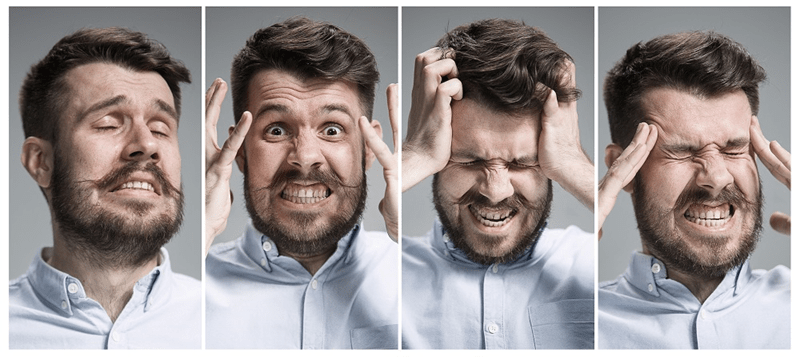Pseudo-bulbar Affect: Emotional Incontinence
Introduction
Do you recollect the phenomenal performance by Joachim Phoenix in the Warner Bros. Picture’s 2019 movie Joker? Not only did he win the Academy Award for the Best Actor, but the movie and the role will also be remembered for decades to come, thanks to the perfectionism shown by the actor in essaying the role of a person suffering from Pseudobulbar affect(PBA).

Image Source: https://cru.mcgill.ca/dr-ducharme-talks-about-the-jokers-laugh/
Pseudobulbar affect is a neurological disorder characterised by uncontrollable laughing, crying or other social-emotional displays that occur due to secondary neurological disorder. It is said to be the cause of certain health problems that can affect the brain. PBA can cause awkward social situations as we see in the movie and these individuals are also treated as ‘abnormal’ or ‘outcast’ from society, further impacting their mental health.
What causes Pseudobulbar Affect?

Image Source: https://www.stroke.org/en/about-stroke/effects-of-stroke/emotional-effects-of-stroke/pseudobulbar-affect
Damage to the prefrontal cortex primarily triggers the pseudobulbar affect. But, in many cases, damage to other parts of the brain, as well and chemical changes in the brain can also result in pseudobulbar affect.
It usually occurs as a result of neurological diseases such as:
- Stroke
- Amyotrophic lateral sclerosis (ALS)
- Parkinson’s
- Traumatic brain injury
- Multiple sclerosis
- Dementia
- Wilson’s disease
- Brain tumours
- Alzheimer’s
- Wilson’s disease
- Neurosyphilis
- Epilepsy
Symptoms of Pseudobulbar Affect
- Uncontrollable and spontaneous crying or laughing that are often not triggered by one’s emotional state
- When the behaviour is out of sync with those around, it can be embarrassing or upsetting leading to stressful situations
- Difficulty in controlling the duration or intensity of laugh or cry
- A sudden outburst of anger or frustration
- Sudden outbursts occur several times during a day and crying is more common than laughing
- Outbursts can be lasting between a few seconds to a few minutes and can occur several times during one day
- Expression of the emotion doesn’t lead to a feeling of relief
Due to this erratic and involuntary emotional upheaval, most people avoid social interactions. This condition can also affect a person’s relationships if they end up embarrassing family and friends on some occasions.
How is Pseudobulbar Affect Diagnosed?
A neurologist or neuropsychologist can diagnose a Pseudobulbar Affect after performing a thorough neurological evaluation and taking note of one’s symptoms, behaviour, and evaluating their past medical history.
It is very common for Pseudobulbar Affect to be mistaken for depression, bipolar disease and even schizophrenia!
Complications
Severe symptoms of pseudobulbar affect (PBA) can cause embarrassment, social isolation, anxiety and depression. Many people find it difficult to work, find jobs, make and maintain friends, do daily tasks, and even get into relationships due to this condition.
How is it Treated?
The first step to a successful treatment is an accurate diagnosis. The primary goal of treating PBA is reducing the frequency and intensity of emotional outbursts. This is primarily done by medications. Supplementary therapies are also provided to the patient to help improve their lifestyle.
Natural remedies should be adopted primarily which can be switched over to Medicines if symptoms still persist. Medicines that can are used to treat PBA include:
- Antidepressants beginning from a lower dose can be administered
- Dextromethorphan and Quinidine (Nuedext)
- Selective serotonin reuptake inhibitors(citalopram) ,sertralin
- Antiglutamanergic (Amantadine)
These medicines may not cure the condition completely, but they are aimed to reduce the intensity and frequency of emotional outbursts.
Educating the patient’s caregivers and other family members about what the condition is and how it affects the patient is also important. Individuals suffering from PBA should seek medical counsellors.
Patients are also advised and motivated to adopt basic relaxation techniques like Yoga, Meditation, Deep breathing, Art therapy and Music therapy that help in eliminating the symptoms and preventing a flare-up.